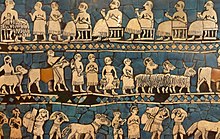**Historical Development of Civilization:**
– The term ‘civilization’ originates from Latin, related to ‘citizen’ and ‘city.’
– Notable works like Norbert Elias’s ‘The Civilizing Process’ and Albert Schweitzer’s ‘The Philosophy of Civilization’ have explored the concept.
– Civilization was initially contrasted with barbarism during the Age of Enlightenment.
– Rousseau distinguished between culture and civilization in the 18th century.
– The earliest civilizations emerged during the final stages of the Neolithic Revolution in West Asia.
**Characteristics of Civilizations:**
– Agriculture has been crucial for the development of civilizations.
– Grain surpluses played a vital role in the growth of civilizations.
– Slavery was common in pre-modern civilizations.
– Civilizations involve social stratification, urbanization, and specialized careers.
– Civilizations have distinct settlement patterns and complex political structures.
**Social and Economic Aspects of Civilizations:**
– Civilizations exhibit social stratification with complex hierarchies.
– Economic systems in civilizations involve complex ownership and exchange patterns.
– Trade and market systems are essential for food distribution in civilizations.
– Transition to complex economies does not always improve living standards.
– Monetarized civilizations developed money for complex transactions.
**Cultural Advancements and Impact:**
– Civilizations have developed diverse cultural traits like organized religion and arts.
– Writing, developed by Sumerians, is a hallmark of civilization.
– Cultural advancements in science and technology often originate in civilizations.
– Spread of culture can assimilate other cultures, leading to diverse influences.
– Protection of cultural heritage is crucial for preserving humanity’s history and diversity.
**Philosophical and Theoretical Perspectives on Civilization:**
– Philosophers like Oswald Spengler, Arnold J. Toynbee, and Samuel P. Huntington have provided insights into civilizations.
– Civilizations are viewed as complex systems interconnected through economic, political, and cultural relations.
– Systems theory is used to analyze civilizations as large organizations.
– Globalization has integrated the world into a single system, akin to ancient trade networks like the Silk Road.
– Preservation of cultural heritage is essential for maintaining cultural memory, diversity, and economic basis.
A civilization (British English: civilisation) is any complex society characterized by the development of the state, social stratification, urbanization, and symbolic systems of communication beyond natural spoken language (namely, a writing system).


Civilizations are often characterized by additional features as well, including agriculture, architecture, infrastructure, technological advancement, a currency, taxation, regulation, and specialization of labour.
Historically, a civilization has often been understood as a larger and "more advanced" culture, in implied contrast to smaller, supposedly less advanced cultures. In this broad sense, a civilization contrasts with non-centralized tribal societies, including the cultures of nomadic pastoralists, Neolithic societies, or hunter-gatherers; however, sometimes it also contrasts with the cultures found within civilizations themselves. Civilizations are organized densely-populated settlements divided into hierarchical social classes with a ruling elite and subordinate urban and rural populations, which engage in intensive agriculture, mining, small-scale manufacture and trade. Civilization concentrates power, extending human control over the rest of nature, including over other human beings.
The word civilization relates to the Latin civitas or 'city'. As the National Geographic Society has explained it: "This is why the most basic definition of the word civilization is 'a society made up of cities.'" The earliest emergence of civilizations is generally connected with the final stages of the Neolithic Revolution in West Asia, culminating in the relatively rapid process of urban revolution and state formation, a political development associated with the appearance of a governing elite.
